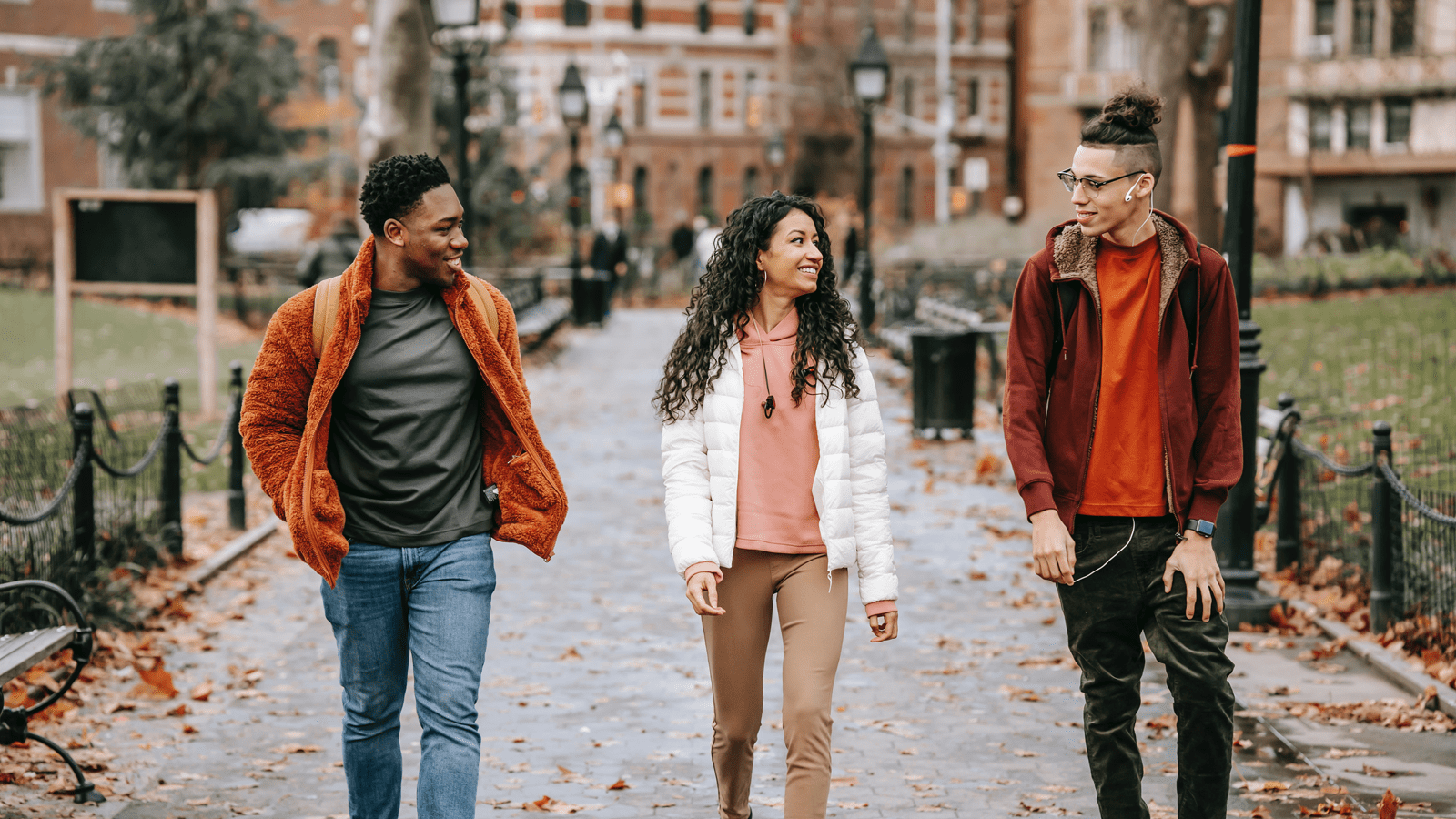
Get stories and expert advice on all things related to college and parenting.

The universal default “want” of parenting seems to be that we just want our kids to be happy.
Somewhere along the way we may have shared this wish with our children, perhaps after one of them insinuated we might be pressuring them to be something they didn’t want to be, or to follow a path that we thought might be best for them.
“I don’t care what you end up doing. I just want you to be happy.”
But as our kids (and we ourselves) grow older, most of us come to realize that wanting to “just be happy” is an elusive pursuit.
Why? Because no one is happy all the time, no matter how rich or healthy or educated or fulfilled they are in life. It’s an impossible goal, and not even a worthy one, in my opinion.
Lately, there’s been a lot of talk about life, contentment and career goals in our house. With two young adults who have spent the last several months applying for post-undergrad educational opportunities, we’ve had many discussions about the problems that Generation Z faces, what they consider their core values to be, what brings them satisfaction or makes them happy, and how they will go about making a difference in the world.
All of these varying essay-type issues that have been swirling around in our minds have made me firmly realize that I’ve never been one of the parents who wants my kids to “just be happy” when they grow up.
If I had to choose one single attribute that I hope they are and will continue to grow into, it would be empathetic. I know I’m not the only one who feels like empathy is somewhat lacking in our country today. Or that many of the “real” adults — the people our teens and young adults are supposed to be looking up to — aren’t setting the best examples when it comes to showing empathy.
According to Dr. Marcia Eckerd, PhD, a clinical psychologist specializing in neurodiversity and social skills, there are at least two kinds of empathy. “Cognitive empathy is seeing the perspective of someone else; emotional empathy is having feelings for the feelings of someone else. They don’t necessarily go together.”
Dr. Eckerd explains, “It may be that many people don’t have cognitive empathy for people whose life experience is fundamentally different from their own, whether this difference is neurotype, racial, ethnic, religious, cultural, gender -related, or some other kind of difference.”
Today’s technology has made it much too easy to primarily interact with people who see things the way we do. We are selectively exposed to news outlets, social media “friends” and entertainment based on our own Likes.
In essence, we can silo ourselves off from whatever we don’t want to see, hear or contemplate, if it goes against our personal beliefs and experiences.
It takes real effort to seek out information that doesn’t align with our view of the world. And the pandemic has not made this easier, as we’ve all been distancing and avoiding interacting with “strangers” who might be fundamentally different than we are.
According to Psychology Today, “Humans begin to show signs of empathy in infancy and the trait develops steadily through childhood and adolescence. Still, most people are likely to feel greater empathy for people like themselves and may feel less empathy for those outside their family, community, ethnicity, or race.”
By the time our kids are in college, we may see a great deal of maturity in them, but their brains and their abilities to be empathic are still evolving. Neuroscientists largely agree that the human brain isn’t fully developed until at least the mid-20s.
How can we help our teens and young adults develop greater empathy? Is it possible to play a part in getting them to recognize, understand and share deeply in the thoughts and feelings of other people?
Here are some steps to consider.
I hope my kids don’t spend too much of their lives seeking happiness. I hope they spend time gaining understanding through curiosity and discussion of other people’s lived experiences. I hope they seek out community with people of differing perspectives, and remain committed to hearing all voices, not just those who agree with them.
Because happiness is a by-product of shared connection, cooperation and genuine relationships.